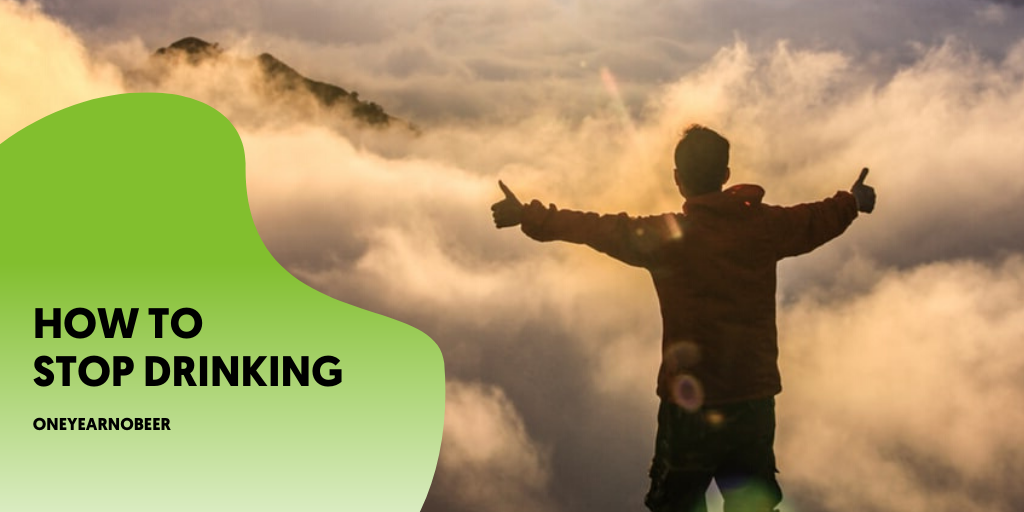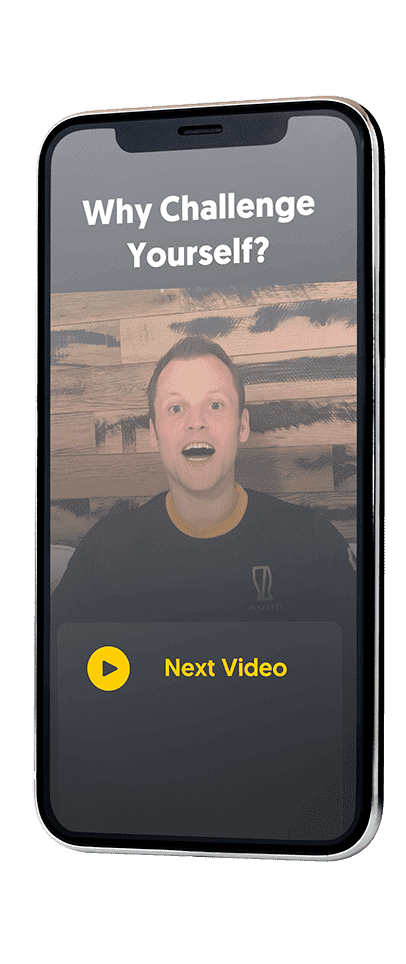How To Stop Drinking Alcohol

Written by:
Amy Collins

Expert review by:
Dr Claire Garnett
In a world that often glorifies the clink of glasses, the decision to stop drinking alcohol can feel like an uphill battle.
However, at One Year No Beer, we understand that the journey to sobriety is a life-changing process. It leads to being able to control your drinking, find your purpose, and ultimately reclaim your life. If you're ready to take that big step towards a healthier and more fulfilling life, here's a guide to help you stop drinking altogether.
Fully Understand Your Alcohol Addiction
Alcohol addiction, a form of substance abuse, can have severe consequences on physical and mental health. Recognising the signs of alcohol withdrawal symptoms and understanding the triggers that give you the urge to drink alcohol are crucial initial steps. Reviewed medical insights from Gov.uk / NHS can help you to understand your addiction better, giving you a strong base to find alcohol support services.
Take the First Step To Stop Drinking
Acknowledging the need for change is the first vital step towards changing your drinking habits. You need to recognise the initial issue and want to put an end to it. The health effects of prolonged alcohol consumption are numerous and can be devastating, such as increased blood pressure. If you follow the below strategies, you can start your journey of breaking free from being dependent on alcohol.
Set Clear and Realistic Goals
Before your journey commences, it's essential to define your goals. What do you hope to achieve by giving up alcohol? Whether it's improved physical health, mental clarity, stronger relationships, or a boost in productivity, having clear objectives will serve as your compass throughout the process.
Build a Support System That You Trust
Quitting alcohol is a personal journey, but having a support system is crucial. Surround yourself with family and friends, or join a community where individuals share similar goals and experiences. Maybe even consider local support groups to help you on your journey. Connecting with others who understand your journey can provide the encouragement and understanding you need during challenging times.
Discover Tasty Alternatives
Part of the challenge of taking control of your relationship with alcohol is breaking the routine associated with drinking. Explore non-alcoholic alternatives to your favourite beverages. As people focus more on health, there is a rising demand for alcohol-free beers, mocktails, and other non-alcoholic drinks. Finding enjoyable substitutes will make social situations more comfortable and help eliminate the desire for a drink.
Develop Healthy Habits
Replace your drinking habits with healthier alternatives. Add exercise to your routine, do mindfulness or meditation, and eat a balanced diet to take care of your body. Engaging in positive activities will distract you from cravings and contribute to your holistic well-being. Having healthy people around you is important to help you stay away from your previous triggers in the long run.

Understand Your Triggers
Consider the reasons that make you want to drink. These reasons may include being with friends, being alone after the kids are asleep, or feeling happy or anxious. Identifying times when you might drink more than planned helps you make solid plans for dealing with those situations.
The availability and convenience of alcohol can have a great influence on your drinking habits. To eliminate potential triggers, one effective strategy is to alter what's physically accessible to you. Another effective method to cut down or quit drinking alcohol completely is to buy less when shopping or replace the alcohol in your house with alcohol-free options.
Structure A Daily Plan
A well-designed daily routine becomes a powerful ally in the quest for a more balanced and healthy life. Structuring each day with purpose and positive activities reinforces the commitment to change. A well-planned daily routine, including morning and evening activities, helps create a positive and structured day. This helps to avoid challenges while improving your overall well-being.
Never Stop Learning
Knowledge is a powerful tool in your journey to changing your drinking habits. Understanding the impact of alcohol on your body and mind will give you more reasons to stay on your path to recovery. The more you know about how detrimental alcohol is to your body, the more empowered you'll feel to make the right choices for your health.
Celebrate Each Milestone
Recognise and celebrate your achievements along the way. Whether it's one day, one week, or one month without alcohol, take the time to acknowledge your progress.
Rewarding yourself for milestones achieved will reinforce your commitment and motivate you to continue on your path.
Seek Professional Help if Needed
If you find that you're struggling to take control on your own, don't hesitate to seek professional help. Consult a healthcare professional, therapist, or support group. It takes strength to ask for assistance, and these professionals can provide treatment options for your specific needs.

Stop Letting Alcohol Control You
Starting on the journey to stop drinking alcohol is a courageous decision that requires commitment, self-reflection, and support. At OYNB, we believe in the life-changing power of an alcohol-free life and the countless benefits it can bring.
By setting clear goals, building a support system, discovering alternatives, developing healthy habits, educating yourself, celebrating milestones, and seeking professional help when needed, you can take control of your life and build a brighter future.
Remember, there are many preventative alcohol treatment services available. Each step forward is a victory on your journey to reclaiming the life you deserve for the long term.
If you need some support on the way and want to learn more about how we can help you get there, contact our team at [email protected] or call 020 7305 7006. We are here to help you on your path to recovery.





